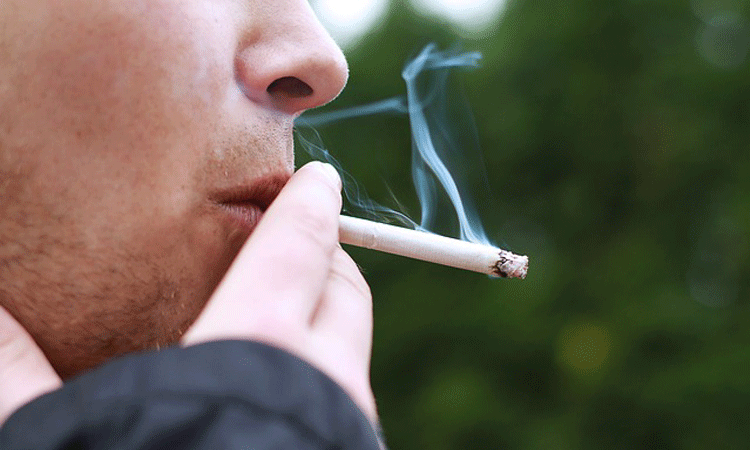When smokers consider health benefits of quitting, they often come across some contradictory concerns. For example:
- Is there a strong association between thyroid dysfunction and smoking?
- If the answer is yes, then why does quitting aggravates the risk of autoimmune hypothyroidism?
Let’s see if latest medical research and clinical surveys can answer these concerns.
Tobacco Smoking and Thyroid Function:
Study reported in the Tobacco Control journal (1) suggested that cigarette smoke has numerous deleterious effects on the thyroid health, such as:
- Cigarette smoke contains more than 50 known carcinogens and several other chemicals (such as aromatic hydrocarbons, nitrosamines, etc.)that are capable of inducing an inflammatory response in all the biological tissues.
- One of the key components of cigarette smoke is cyanide, which has the tendency to convert into thiocyanate compounds. High tissue concentration of thiocyanate directly inhibits the uptake of iodine and thereby limits the thyroid hormone synthesis (2).
- Thiocyanate and other inflammatory chemicals also interfere with the peripheral action of thyroxine (such as decreased affinity for receptors and poor conversion of hormone to the active forms).
The above results show the multiple harmful effects of smoking on thyroid function. Thus, one may assume that smoking cessation improves thyroid health! Surprisingly, the opposite is true, at least in the short-term.
Does Smoking cessation actually aggravates the risk of Hashimoto’s thyroiditis?
According to a study reported in the scientific journal Hormones (3), investigators identified that smoking cessation is associated with a 6-times higher risk of developing autoimmune hypothyroidism (also known as Hashimoto’s disease or Hashimoto’s thyroiditis)within the first two years of quitting. It was also proposed that more than 85% patients would not have developed overt hypothyroidism if they had continued smoking (3). However, it is also noteworthy that investigators did not found added risk of developing autoimmune hypothyroidism after 2 years of smoking cessation.
There are a number of other studies that indicates a low prevalence of subclinical Hashimoto’s thyroiditis in smokers compared with non-smokers (3, 4, 5). In addition, another study reported in the European Journal of Endocrinology(4) suggested that the concentration of autoimmune antibodies is generally low in smokers when compared to a person who has never smoked (4).
The exact pathophysiology is not known, but investigators believe that the elimination of the direct source of thiocyanate (the anti-thyroid agent present in cigarette smoke), the tissue availability and tissue uptake of iodine quickly escalates, which can lead to reactionary hypothyroidism.
Conclusion:
Smoking is the number one preventable cause of death. According to latest data released by Centers for Disease Control and Prevention, each year more than 480,000 preventable deaths are attributed to tobacco consumption in the United States. This corresponds to 1,300 deaths per day. Therefore, even though smoking cessation can increase your chances of developing Hashimoto’s Disease in the short term, given the multiple other problems associated with smoking, it is highly recommended to not expose yourself to first-hand or second-hand cigarette smoke in the first place.


Be the first to comment on "Smoking Cessation and Hashimoto’s Disease"